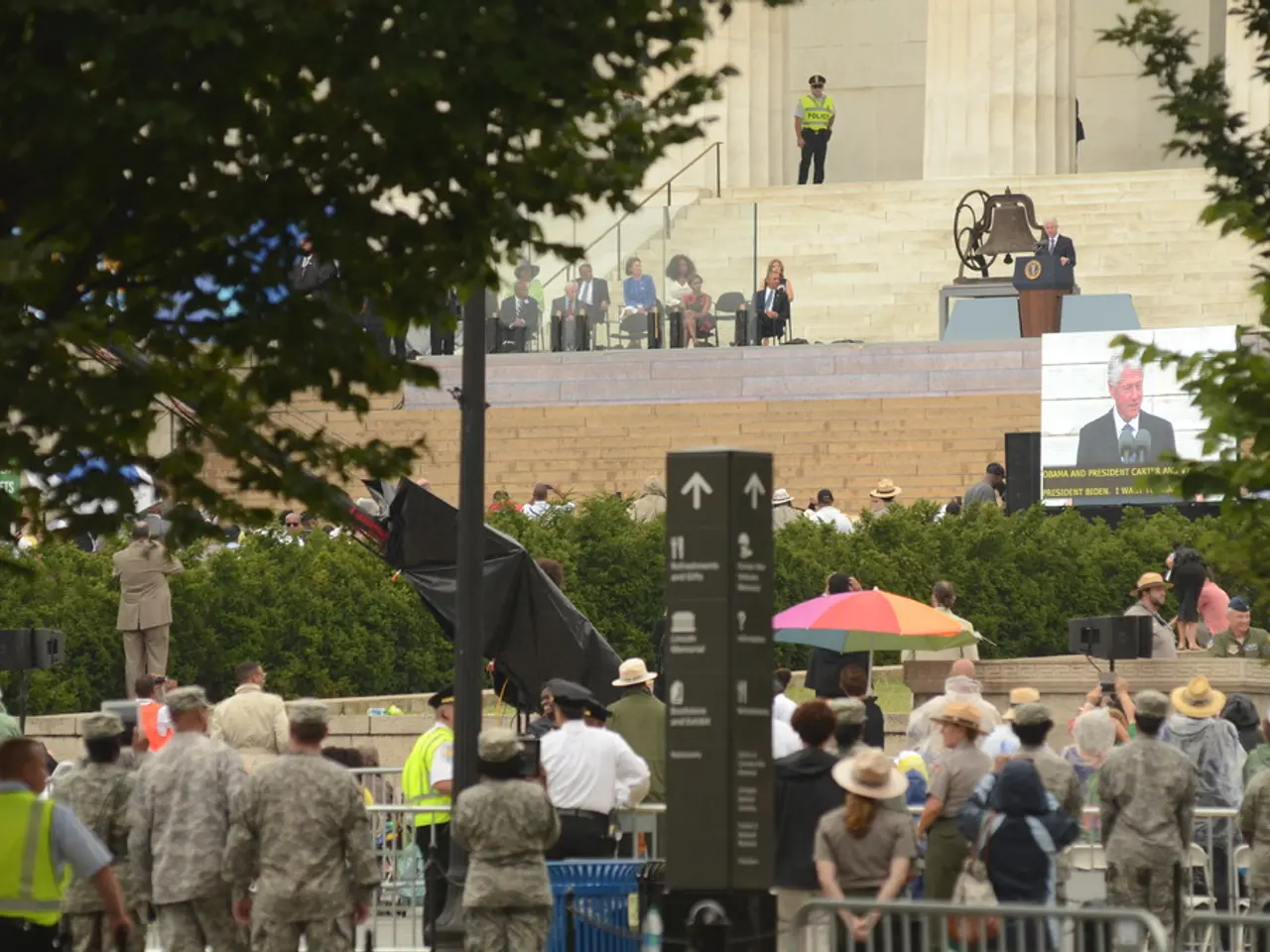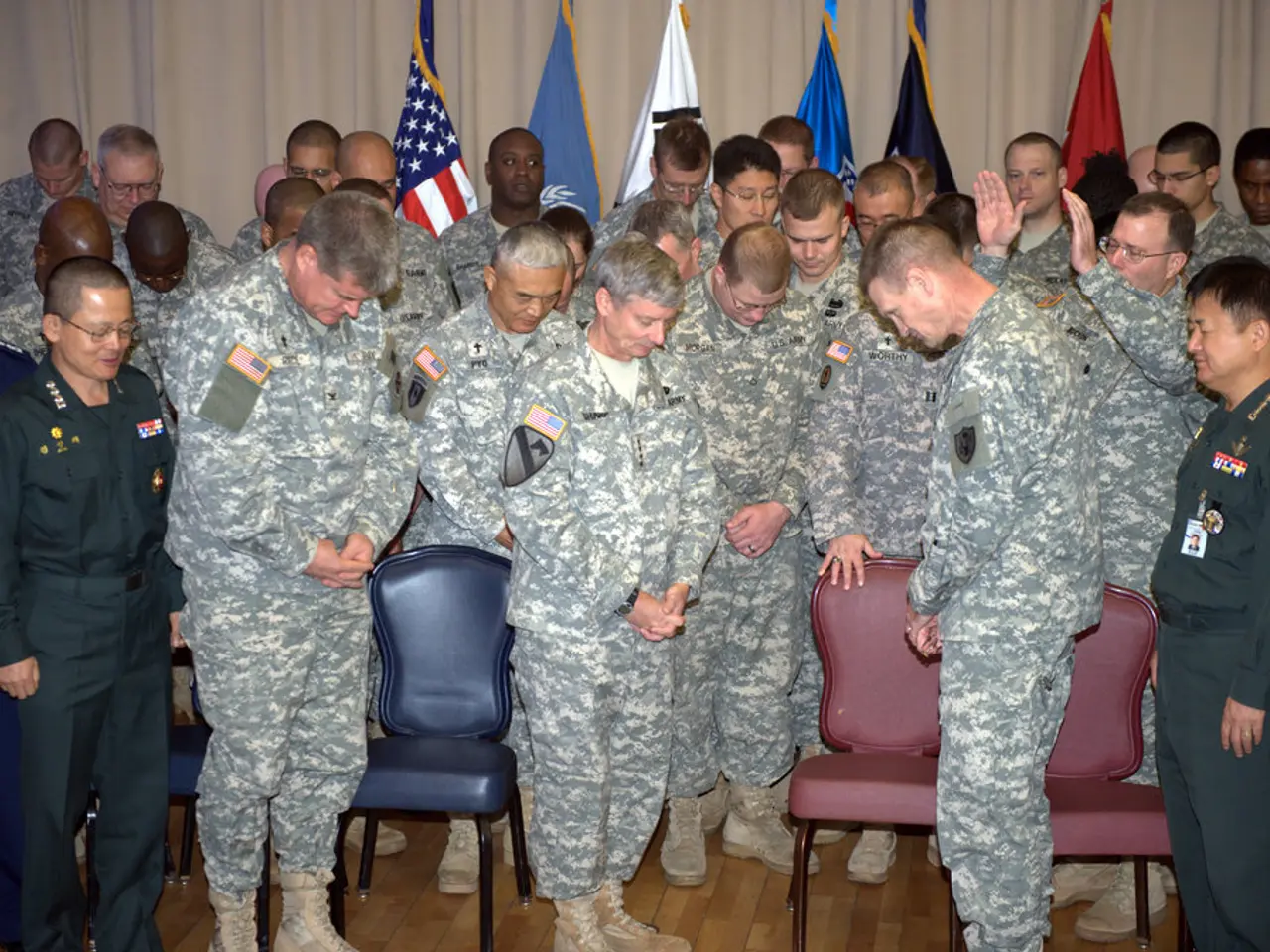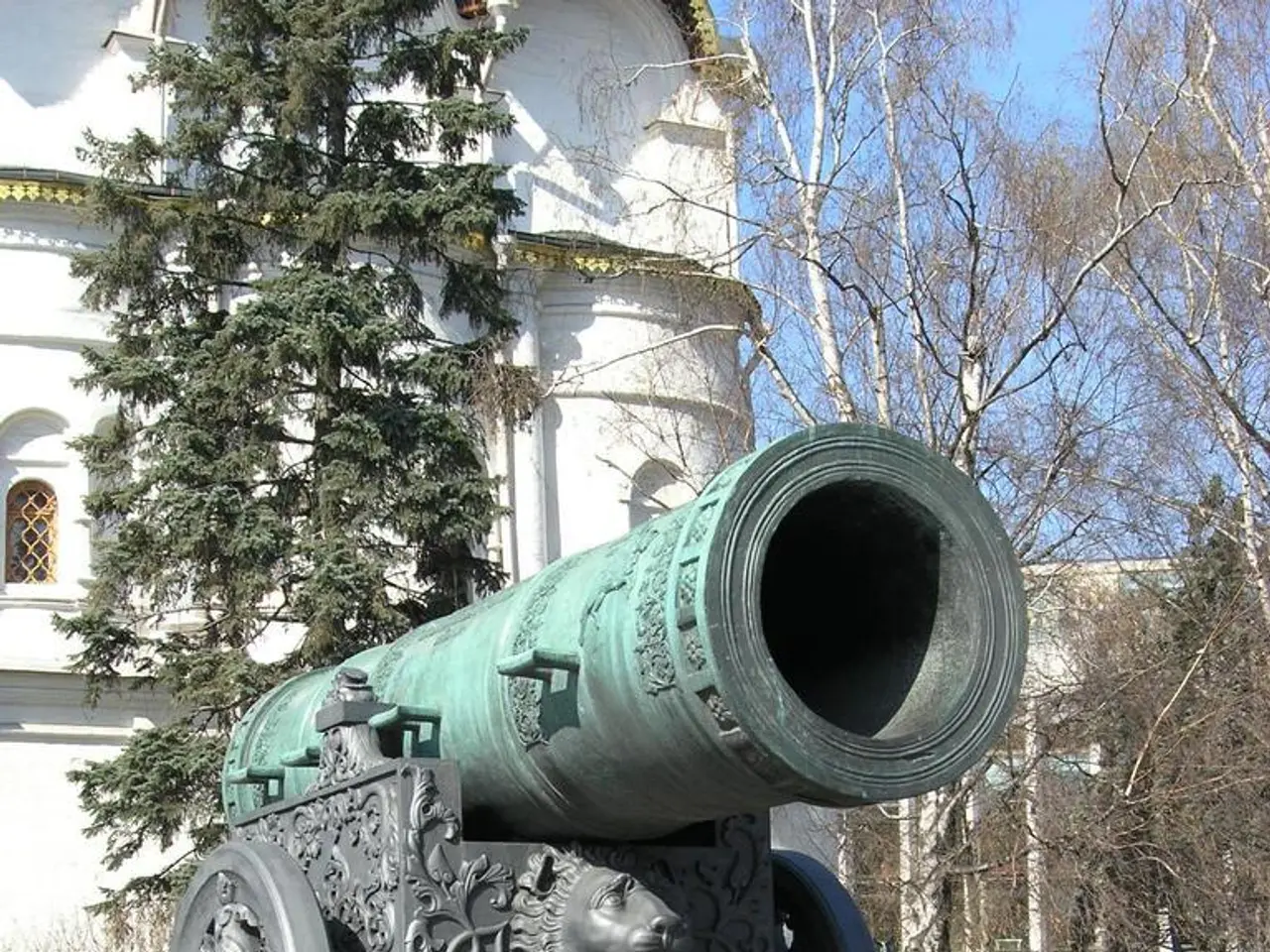Iran's Leader Warns U.S. Over Potential Attacks, IAEA Tensions Rise
US supreme leader issues threats of additional assaults towards Iran
In a compelling televised speech, Iran's Supreme Leader Ayatollah Ali Khamenei has issued a chilling warning to the U.S., suggesting that retaliatory strikes against American bases could be on the horizon. His remarks come following a ceasefire with Israel, which ended a week of intense conflict between the two nations. expressed his concerns, stating, "In the event of an attack, the enemy, the aggressor, will certainly have to pay a heavy price."
This warning comes after nearly a fortnight of silence from the 86-year-old Iranian leader. Meanwhile, Iran's Guardian Council, a powerful oversight body, has approved a temporary suspension of cooperation with the International Atomic Energy Agency (IAEA). This move is seen as a significant step before the law comes into effect, as Iran's parliament decided not to allow IAEA inspectors into the country until the "security" of nuclear facilities is guaranteed. Speaker of parliament, Mohammed Bagher Ghalibaf, called for the IAEA to condemn the attacks by the U.S. and Israel on nuclear facilities and acknowledge Iran's nuclear program.
IAEA Unaware of Suspension Details
In response to these developments, a spokesman for the IAEA stated in Vienna that "The IAEA has not yet received any official communication from Iran on this matter."
Over the weekend, the U.S. entered the conflict by attacking the underground Fordo nuclear plant with bunker-busting bombs, among other targets. Despite experts' ongoing efforts to assess the extent of the damage, the facilities' exact condition remains unclear. On Tuesday, U.S. President Donald Trump announced a ceasefire between Israel and Iran, which has held until now.
The attacks were initiated due to suspicions that Iran's leadership was secretly advancing the development of nuclear weapons while purporting to use nuclear energy solely for civilian purposes.
U.S. Defense Secretary Questions Assessment
On Thursday, U.S. Defense Secretary Pete Hegseth expressed doubt about a preliminary assessment by the military intelligence agency DIA on the impact of U.S. attacks on Iranian nuclear facilities, stating, "The assessments are currently only conditionally reliable and need to be refined with additional information."
The top-secret DIA report suggested that the heavy air strikes by U.S. forces have only set back Iran's nuclear program by a few months. Amidst criticism from the White House regarding the publication of these findings, many media outlets emphasized that the initial report was subject to change with further investigations.
Possible Nuclear Talks on the Horizon?
On the sideline of the NATO summit in The Hague, Trump made an unexpected announcement about new talks with Iran. Negotiations on Iran's contentious nuclear program had been underway, mediated by the Gulf state Oman, for about two months prior to the "Twelve Days War." However, as of Thursday, there has been no confirmation from Tehran for a new round of talks scheduled for next week.
Despite the ceasefire, Iran's airspace remains largely closed, with some relaxations granted for domestic flights but Tehran's international airport staying shut down. This measure is expected to remain in place until Friday at 14:00 local time (12:30 CEST).
Tensions Simmer
While the ceasefire presents a potential opportunity for nuclear negotiations, deep disagreements persist, especially over uranium enrichment. As of late June 2025, Iran continues to maintain stockpiles of enriched uranium, and it remains unclear if Iran is willing to accept the zero enrichment condition. Meanwhile, the U.S. maintains its stance that Iran will not be allowed to have enrichment capabilities or a nuclear weapon.
The sudden warning from Iran's Supreme Leader Ayatollah Ali Khamenei about potential retaliatory strikes against American bases could indicate a heightened tension in war-and-conflicts, following his concerns about the U.S.'s attacks on Iranian nuclear facilities and the IAEA's temporary suspension of cooperation with Iran. This unfolding political situation, including the ongoing disagreements over uranium enrichment, further underscores the general-news and international relations' complexity.






